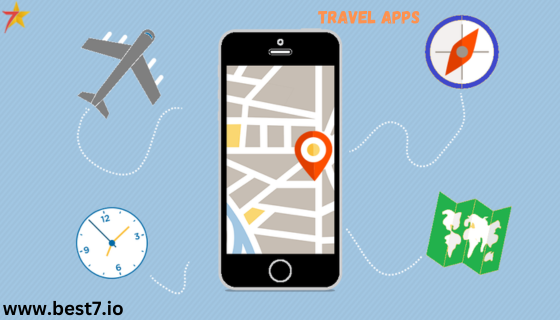
With the development of mobile technologies, the use of travel apps has revolutionized the tourism industry. Today, at every stage, from booking a flight to designing a detailed plan of a trip, mobile travel planning has become unprecedentedly convenient and effective. Modern travel apps leverage their technology to provide users with a variety of digital travel tools to optimize all the services that the journey required.
The unification of travel recommendations, navigation tools, and personalized travel itineraries is an essential part of how travel apps interact with tourists and today’s industry development. In this blog, I will describe the impact that travel apps have on the industry on the basis of the two case applications of travel apps in the past and will discuss the future trajectory of mobile travel solutions.
How Mobile Trip Planning Changed the Tourism Industry
Mobile trip planning applications brought the era of unprecedented convenience for travelers, as people can now rely on their smartphones to plan their entire journeys. Before the development of travel apps, people had to search for flight and hotel options on a variety of websites that offer this type of service.
Alternatively, relatively glossy types of services were using separate websites or consulting travel agents who had experience with itinerary planning. Nowadays, mobile travel apps aggregate all relevant tools in one place, and users have complete digital travel assistants at their fingertips with the ability to find flights, book hotels, design a full itinerary, and even receive real-time travel suggestions on the way to their next destination.
According to a case study by CleverTap conducted in 2018, the rise of travel apps gained popularity and became a dominant way of planning trips among millennials and Gen Z-travelers. The user base of Kayak, Expedia, as well as TripIt, and other applications for planning trips and traveling combined grew by 45% over 2015 to 2018.
From flight booking apps to hotel booking apps that helped with planning and offered real-time services with special offers. About 70% of travelers today prefer using mobile apps instead of traveling websites, as they offer a personalized and convenient way to organize the journey. By 2030, the majority of travelers—almost 80% of the total volume—will use travel apps to plan their trips across the globe.
The new and upcoming developments in the industry will only strengthen the role and importance of traveling applications in smartphones, making trip planning easy, useable, and rewarding. Travel apps are considered integral to planning trips and will define the tourism experience in the upcoming years to a greater extent.
Boosting Travel Efficiency with Mobile Apps
As for the impact of travel apps, the most important one is their role in boosting travel efficiency. The development in the field of applications for traveling has provided a modern solution to planning trips and helped travelers save time and organize their trips more efficiently. Thus, with flight booking apps, one can easily compare prices to make the most cost-lucrative decision or book an optimal and affordable ticket.
Similarly, by using travel apps, travelers can choose and book a hotel based on real-time availability and special deals and offers. Finally, according to the case study, some 70% of travelers prefer using applications compared to traditional traveling services as they are more personalized. Travel technology continues to grow and improve, offering travelers mobile solutions to get ready for the whole journey.
According to a 2019 case study on travel app efficiency, travel mobile tools “cut typical travel planning time in half.” People using the app reported that, when utilizing flight booking applications such as Skyscanner and Google Flights, they could find and buy tickets in under 10 minutes. It takes them the same amount of time to plan their accommodation using hotel booking applications like Booking.com or Airbnb.
The case study also suggests that there is a growing tendency by mobile users to use all-in-one apps. Those apps allow scheduling flights, hotels, and car rentals in a single destination, thus reducing the time that it takes to plan a journey and increasing its efficiency.
The Future of Travel Apps: A Growing Trend
In the forthcoming years, travel apps are going to become more commonly used by the population. It is anticipated that, by 2028, 85% of journeys are going to be planned by taking advantage of a mobile system. There is also a tendency by customers to use an app that features multiple services at the same time.
The convenience of digital applications will further innovate in this area to facilitate trip planning and cut travel time. In addition to a more efficient booking service, mobile systems will also provide tourists with updated real-time information about their journey as well as more sophisticated feedback on travel options and dangers.
Finally, as time progresses, more users will begin employing voice-activated apps or other similar technology. These devices allow planning a journey in a matter of minutes by simply talking to a machine.
Key Features of Modern Travel Apps
- Personal travel itineraries: There are apps, such as TripIt and Sygic Travel, which allow users to generate a personal itinerary. Such apps can be synced with a user’s email account, phone, and social media to track the bookings automatically. As a result, travelers do not have to worry that they left something behind, as they get a detailed and precise plan of their journey and activities.
- Offline maps and navigation: Google Maps or Maps.me, which allow travelers to download offline maps previously, have also risen in popularity. Currently, many tourists use such applications to find their way without the necessity of the internet, especially in remote destinations.
- Real-time information about public transport: Provided instruments like Citymapper deliver constantly updated schedules of public transport and potential delays along with the alternative ways. The app may also provide real-time information feeds counting five minutes ahead. As analyzed by the World Travel & Tourism Council, by 2025, 60% of comprehensive itineraries through major world cities will be managed via public transport applications.
- Self-guided tours: There are multiple attractions provided with informational audio guides, which can be downloaded from the apps during the visit. Some companies offer to rent special devices to listen to the guides, which users can also replace with their smartphones if they have this option. Thus, travelers can manage to visit outstanding and historical places alone at their pace.
- Recommendations and social experiences: Apps like Yelp or TripAdvisor provide information about establishments and attractions along with user reviews and ratings. As a result, travelers do not miss the best places in the area and can additionally find some hidden gems.
The Different Types of Travel Apps
- Adaptive apps: Here, no individual intervention by a user is needed. They change their own configurations to adapt to the user’s preferences. For example, by analyzing your past trips, a booking app is capable of adjusting your standards for accommodation and flights.
- Predictive apps: These applications suggest actions based on a user profile they create for you. For example, a weather app can predict from your geographical area and the places you frequent what the weather will be like at a particular location. Predictive APIs will be integrated into modern travel apps.
- Prescriptive apps: In this case, the applications do not merely predict an event even before it happens but also take action. A good example of an app is Hopper. Based on past trips, it can predict when it will be the ideal time to book flights.
The Future of Travel Apps: Augmented Reality and Blockchain
By taking a closer look at the section highlighted above, we can conclude that the role of travel apps will go beyond improving trip planning techniques into assisting the user in planning individual trips. The future of travel apps seems promising, and it is probably only a question of time before these applications become an integral part of every user.
In the forthcoming years, augmented reality will become a key trend in the development of travel apps. By 2030, virtually all travel apps are likely to contain AR features allowing travelers to engage with the destination they are planning to visit. Such incorporation will hugely benefit the travel booking process by enabling users to have immersive previews of hotels and sightseeing opportunities, as well as possible activities associated with the trip.
At the same time, navigating apps will use AR to give real-time directions through a phone’s camera, showing the actual surroundings of the passerby. Finally, the rapid advance of blockchain technology will also affect mobile travel planning. By 2030, travel apps, including technologies leveraging the blockchain, will become prevalent. In such applications, customers will be able to perform even more secure transactions during the booking or payment processes.
The Future of Travel Apps and Their Growing Influence
To sum up, by 2040, travel apps will take up all the space of travel planning. Their future use will enable nearly all the bookings and arrangements related to the trip to be completed via a phone. Summarizing the two key trends that will affect mobile travel planning in the upcoming years, the major focus will be on the increase of convenience and personalization of the apps.












